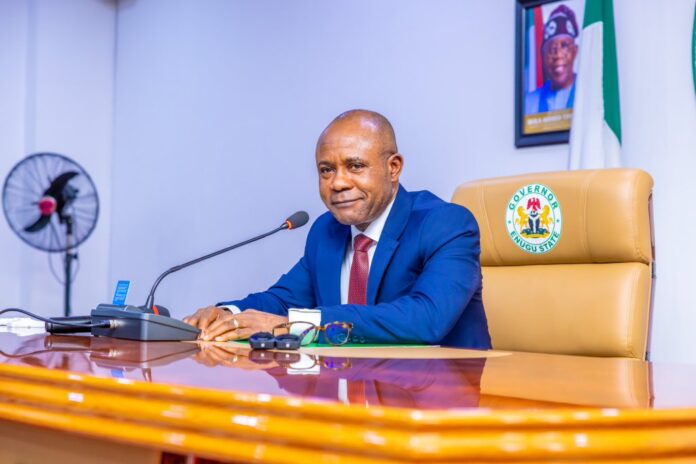IGR: Our Target Is To Pay Salaries Without FAAC – Enugu Govt
The Enugu State Government says its target this year is to pay salaries from the Internally Generated Revenue (IGR) rather than relying on allocation from the Federal Government.
The Secretary to the State Government (SSG), Prof Chidiebere Onyia made the disclosure at the 49th Annual Synod of the Enugu Archdiocese of the Methodist Church on Sunday.
According to the SSG, who represented the governor, Mr Peter Mbah at the event, the government is determined to improve the revenue earnings of the state as well as boost its Gross Domestic Product from N4 billion to N40 billion.
Onyia explained that the government did not increase taxes but to block the loopholes in revenue generation and capture businesses that had not been paying taxes.
He encouraged residents of the state especially the private sector to pay their taxes direct to government coffers.
“We have succeeded in blocking people from printing fake receipts on behalf of the government and ensured that all tax payments are paid to the government.
“Our target is to pay salaries without allocation from the Federation Account Allocation Committee (FAAC) but from our IGR,” the SSG said.
He also disclosed that in the next 40 days, there would be pipe borne water in most parts of the state capital adding that major road constructions and rehabilitations in some parts of the state would also be completed.
The SSG thanked the Methodist Church for its support to the government especially during elections.
Onyia urged the clergy to assist in teaching the people on behavioral change by encouraging their members to perform their civic responsibilities including payments of taxes.
Earlier, the Methodist Archbishop of Enugu Diocese, Most Rev. Christopher Edeh commended the governor for its achievements since assumption of office 10 months ago.
The archbishop however, urged the government to reconsider its method of collecting taxes as the Small and Medium Entrepreneurs were finding it difficult to cope with the tax agents.
Edeh also advised the governor to consider existing primary and secondary schools in its Smart School project noting that the government seemed to ignore the old schools while erecting new ones.
He explained that the annual synod was the highest decision making body of the church where it reviewed and improve on its activities.
The archbishop appealed to the government to include the church in its development programmes especially in appointive positions.





